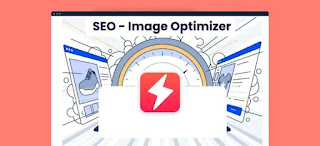Unlocking Success: The Power of Digital Marketing for Your Business
The digital age has transformed how businesses operate and reach customers. In today’s world, a strong online presence is no longer a luxury, it’s a necessity. This trifecta of website development, website management, and digital marketing forms the cornerstone of any successful online strategy.
Website Development: Building Your Digital
Dwelling
Imagine your website as your virtual storefront or
office. Website development is the process of constructing this space, making
it visually appealing, user-friendly, and functional. Here’s what goes into
building a great website:
· Planning and Design:
This involves defining your website’s goals, target
audience, and overall brand identity. A well-designed website should be
visually appealing, easy to navigate, and optimized for different devices
(desktop, mobile, tablet).
· Content Creation:
Engaging and informative content is the lifeblood of
your website. This includes crafting clear website copy, compelling product
descriptions, and valuable blog posts.
· Development:
Here, the technical aspects come into play. Developers
use various programming languages and frameworks to bring your website to life,
ensuring it functions smoothly and securely.
· Content Management System (CMS):
A CMS allows you to easily add, edit, and update your
website content without needing coding expertise. Popular CMS options include
WordPress, Wix, and Squarespace.
Website Management: Keeping Your Digital Doors
Open
Think of website management as the ongoing maintenance
of your online space. It ensures your website remains up-to-date, secure, and
functioning optimally. Key website management tasks include:
· Content Updates:
Regularly update your website with fresh content to
keep visitors engaged and coming back for more.
· Security Maintenance:
Regularly update security software and plugins to
safeguard your website from cyber threats like malware and hacking attempts.
· Performance Monitoring:
Track your website’s performance metrics such as
loading speed, bounce rate, and user engagement. Use these insights to identify
areas for improvement.
· Analytics Tracking:
Implement analytics tools like Google Analytics to
understand your website traffic, user behavior, and identify potential leads
and customers.
· Backups:
Regularly back up your website data to ensure you have
a recovery plan in case of technical issues.
Digital Marketing: Attracting Visitors and
Converting Leads
Now that you have a well-developed and managed website,
it’s time to attract visitors and turn them into customers. This is where digital marketing comes in. It’s the art
of leveraging online channels to promote your website, brand, and products or
services. Here are some key digital marketing strategies:
· Search Engine Optimization (SEO):
Optimize your website content and structure to rank
higher in search engine results pages (SERPs) for relevant keywords. This increases
organic traffic to your website.
· Search Engine Marketing (SEM):
Utilize paid advertising platforms like Google Ads to
reach a wider audience and drive targeted traffic to your website.
· Social Media Marketing:
Engage with your target audience on social media
platforms like Facebook, Instagram, and Twitter. Share valuable content, run
targeted ads, and build brand awareness.
· Content Marketing:
Create high-quality content like blog posts,
infographics, and videos that educate, entertain, and inform your target
audience. Consistent content marketing builds trust and establishes your brand
as an authority in your industry.
· Email Marketing:
Build an email list and use email marketing tools to
nurture leads and send targeted promotional campaigns.
The Intertwined Trio: How They Work Together
Website development, website management, and digital
marketing are not isolated entities; they work best when combined into a
cohesive strategy. Here’s how they work together:
· A well-developed website with clear calls to action
(CTAs) provides the foundation for successful digital marketing campaigns.
· Website management ensures your website is optimized
for search engines, improving your SEO efforts.
· Digital marketing drives traffic to your website,
where high-quality content and a user-friendly design convert visitors into
leads or customers.
Building Your Online Success Story
Developing, managing, and marketing your website
requires ongoing effort and strategic planning. By understanding these three
key components and how they work together, you can establish a strong online
presence and achieve your business goals.
Additional Tips:
·Stay up-to-date:
The digital landscape is constantly evolving. Stay
informed about the latest trends and best practices in website development,
management, and digital marketing.
·Seek professional help:
If you lack the technical expertise or resources to
manage these tasks in-house, consider hiring a web development agency or a
digital marketing professional.
Measure and analyze:
Regularly monitor the performance of your website and
digital marketing campaigns. Use these insights to refine your strategy and
maximize your return on investment
Building a Successful Online Presence
By understanding the importance of website development, website management, and digital marketing, and by leveraging the available tools and resources, you can establish a strong online presence for your business. Remember, success in the digital world is an ongoing process. Stay curious, keep learning, and adapt your strategies based on data and analytics. With dedication and a well-defined plan, you can build a thriving online presence that attracts new customers and drives business growth.




Comments
Post a Comment